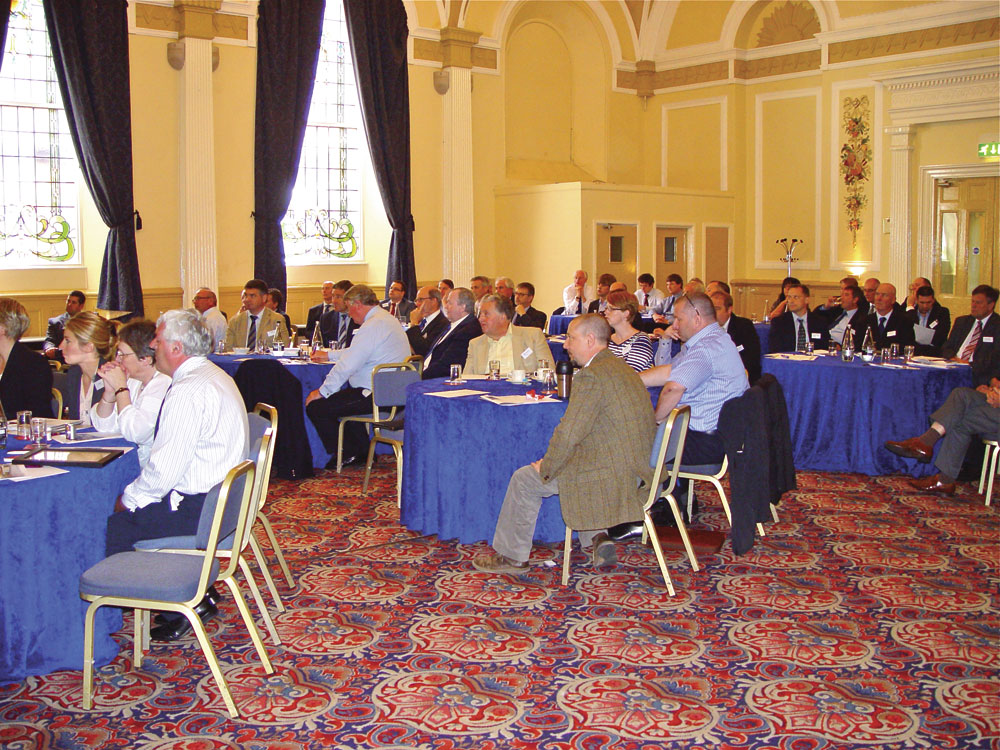Stand and Deliver

QM reports on the BAA’s 2012 seminar proceedings
This year’s British Aggregates Association Conference, which took place on 18 June at the Palace Hotel in Buxton, Derbyshire, saw more than 90 members and associates attending the annual general meeting.
The all-day event proved to be highly thought-provoking with no less than 10 high-quality speakers contributing to the seminar proceedings during which a broad range of topics was discussed, including: health and safety; apprenticeships; quarry restoration/biodiversity; and archaeology.
The formal proceedings began with a morning session comprising five short cameo presentations on recent sector developments, including: a quick update on the Nature After Minerals programme by Dr Caz Jewell of NAM; advice on archaeological assessments by Will Bedford of CgMS; and an overview of the latest legislation to impact on quarry restoration by Martin Layer of Smiths.
Safety first
Concluding the morning session was Eric Darlow, chairman of the BAA Assessment of Operating Standards Scheme, who, once again, reiterated the importance of assessing operating standards in quarries and praised those members for their participation in the Site Assessment Scheme.
Importantly, Mr Darlow urged more SMEs to take part in the scheme especially at a time when health and safety is a top industry priority. He commented: ‘We are now in the fifth year of the scheme…It is almost inconceivable that a scheme designed specifically for BAA members which demonstrate that businesses are honouring their moral obligation to protect their staff, and helps avoid the distress, disruption, crippling fines and compensation caused by a serious accident, is not more widely taken up.’
Several member companies have expressed an interest in the audit scheme, and at this year’s conference safety certificates were awarded to: Cloburn Quarry Company’s Cloburn site, in South Lanarkshire; Smith Bletchington’s Dewars Farm Quarry, in Oxfordshire; Longcliffe Quarries’ Bone Mill site, in Derbyshire; and Kinegar Quarry’s Kinegar and Glenfin rock quarries, in the Scottish Borders.
Talk that talk
Continuing the theme of health and safety best practice, the afternoon session commenced with a presentation by Colin Mew, HM principal inspector of the Quarries National Inspection Team, who spoke about the organizational changes within the HSE and the need for the industry and government organizations to work proactively together.
Mr Mew then went into detail on some of the key factors to improving the health and safety of the quarrying workforce, including: visible leadership; ‘building competence’; and staff involvement at all levels. He also welcomed the opportunity for the HSE and BAA member companies to work more closely together to promote and demonstrate good health and safety practice across the wider quarrying industry.
Next to take the stage was Julian Smallshaw, education and training manager for MPQC and the Institute of Quarrying, who gave a talk on the importance of apprenticeships at a time when there are skills shortages on the horizon for the industry.
In particular, he focused on a new course – L4 Higher Apprenticeship – which has been developed to encompass a range of industry sectors (eg construction materials, extractives, mining etc.) and that can be taught via a number of methods, including distance learning, to give young apprentices ‘total flexibility’.
The penultimate presentation entitled ‘Life After MPGs’, by Ian Lamond, a partner with solicitors Stephens Scown, discussed the impact of the National Planning Policy Framework on the mineral products industry. With the Minerals Planning Guidance cancelled and replaced by the new Framework, Mr Lamond said the planning system, as a result of the change, could become less complex and more accessible in order to protect the environment and to promote sustainable growth.
Next to speak and rounding off the seminar proceedings was Peter Prior, chairman of Summerleaze, who gave an inspiring talk on the role of independent UK quarry firms within the sector and how they are performing well, despite the economic recession and market dominance of the majors. Fittingly, as the seminar drew to a close, he commended the BAA for its unequivocal support for smaller businesses and, as a truly effective voice for the independent sector.


